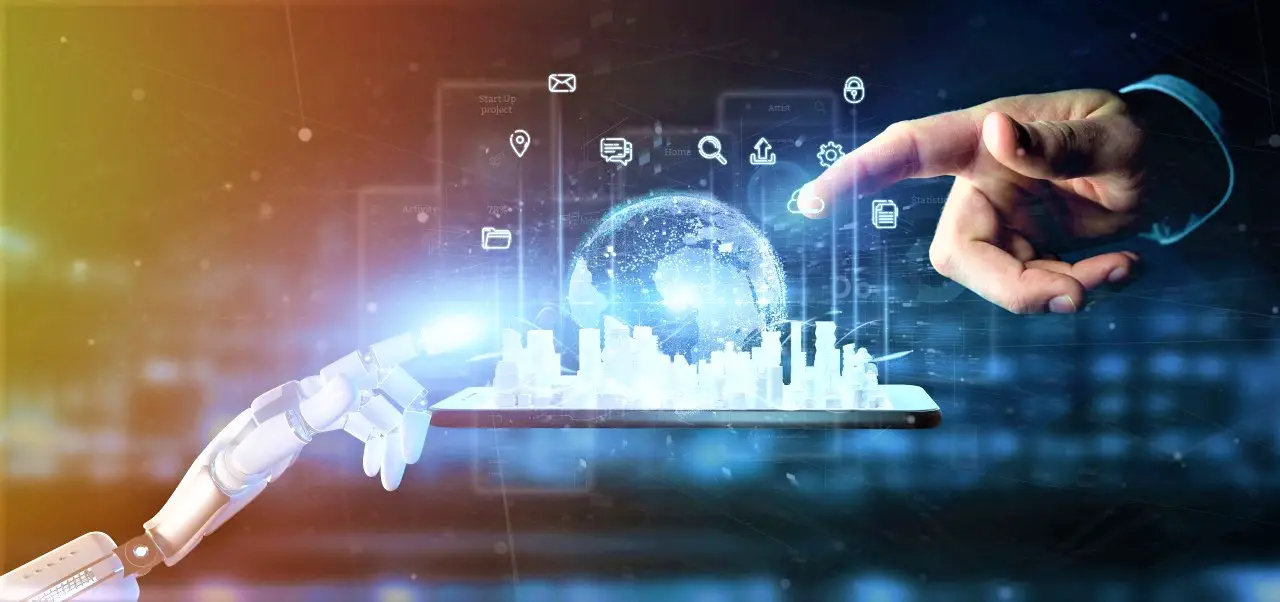In 2023, the world stands witness to a technological revolution that has the power to reshape our society in unprecedented ways. Artificial Intelligence (AI), once confined to the realms of science fiction, is now an integral part of our daily lives. From enhancing convenience and productivity to raising ethical concerns, the impact of AI on society is both multifaceted and profound.

The Positive Power of AI:
AI-driven advancements have ushered in a new era of convenience and efficiency. Industries such as healthcare, finance, and transportation have experienced significant improvements. Automation, predictive analysis, and personalized recommendations have streamlined processes, saving time and resources.
Empowering the Workforce:
Contrary to fears of job displacement, AI has proven to be a valuable tool for augmenting human capabilities. Repetitive tasks are now automated, allowing the workforce to focus on higher-order thinking, creativity, and innovation. Upskilling and reskilling programs have emerged to prepare individuals for AI-centered workplaces.
Healthcare Revolutionized:
The healthcare sector has witnessed a remarkable transformation through AI applications. Diagnostics, drug discovery, and patient care have been enhanced by AI’s ability to analyze vast amounts of data with unprecedented accuracy. Remote patient monitoring and telemedicine have become accessible, revolutionizing healthcare delivery.
Ethical Dilemmas and Bias:
While AI promises progress, ethical concerns loom large. Bias in algorithms, data privacy breaches, and the potential for misuse raise crucial questions. Striking a balance between technological advancement and ethical considerations remains a challenge society must address.
Education in the AI Age:
Education has embraced AI-driven personalized learning experiences. Adaptive learning platforms cater to individual student needs, ensuring more effective knowledge retention. However, questions about data security and the role of human educators persist.
AI in Art and Creativity:
AI-generated art, music, and literature have sparked a new wave of creativity. While AI tools can assist artists, they also provoke discussions about originality and the essence of human expression. The fusion of AI and human creativity opens uncharted avenues.
Economic Reshaping and Job Dynamics:
The economic landscape is evolving as AI drives changes in market demands. New job roles such as AI ethicists, data scientists, and AI trainers have emerged. Navigating this shift requires proactive policies for workforce development.
Environmental Conservation Efforts:
AI’s potential in environmental monitoring and conservation is undeniable. From predicting natural disasters to optimizing energy consumption, AI contributes significantly to sustainable practices. It plays a pivotal role in mitigating the impacts of climate change.
Urban Living and Smart Cities:
AI technologies are instrumental in shaping the smart cities of the future. From traffic management to waste disposal, AI streamlines urban operations, enhancing the quality of life for residents. However, concerns over data security and surveillance must be addressed.
Redefining Human-Machine Interaction:
AI-driven voice assistants, chatbots, and humanoid robots have redefined how humans interact with machines. Natural language processing and emotional AI are making interactions more human-like, blurring the lines between man and machine.
FAQs:
What is the role of AI in healthcare in 2023?
AI has revolutionized healthcare by improving diagnostics, drug discovery, and patient care through data analysis and predictive modeling.
Is AI contributing to job loss?
Contrary to concerns, AI is augmenting the workforce by automating mundane tasks and creating new job roles centered around AI technologies.
What ethical concerns are associated with AI?
Bias in algorithms, data privacy, and the potential misuse of AI raises ethical dilemmas that need careful consideration.
How is AI impacting education?
AI is reshaping education with personalized learning experiences, though debates about data security and the role of educators persist.
Can AI replace human creativity?
AI-generated art and music inspire creative discussions, highlighting the potential collaboration between humans and machines.
What new job roles are emerging due to AI?
AI ethicists, data scientists, and AI trainers are among the new job roles created by the AI revolution.
How does AI contribute to environmental conservation?
AI aids in predicting natural disasters, optimizing energy use, and promoting sustainable practices for environmental protection.
Are there concerns about AI’s impact on privacy in smart cities?
While AI enhances urban living in smart cities, there are concerns about data security and surveillance that need addressing.
How is AI changing human-machine interaction?
AI-powered voice assistants, chatbots, and emotional AI are making human-machine interactions more natural and human-like.
What are the key challenges in adopting AI in society?
Key challenges include addressing bias in algorithms, ensuring data privacy, and navigating economic shifts caused by AI’s influence.
Conclusion
In conclusion, the impact of AI on society in 2023 is undeniable, touching upon various aspects of our lives. From positive transformations in industries and education to ethical concerns and economic shifts, AI’s influence is complex and multifaceted. As society continues to integrate AI into everyday life, it is crucial to navigate its implications with a balanced approach that maximizes benefits while safeguarding ethical principles and human values.
